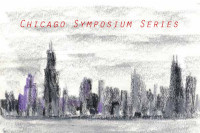Purdue University
Faculty perspectives of the undergraduate chemistry laboratory were the focus of a mixed methods study to articulate the goals, strategies, and assessments used in undergraduate teaching laboratories. In the qualitative study interviews were conducted with 22 faculty from different types of institutions, chemistry disciplines, and course levels engaged in teaching or supervising undergraduate laboratories. Their goals for general chemistry, organic chemistry, and upper division laboratories were elucidated and compared across courses and institutional types. Additionally comparisons were made between faculty who have received grants to implement changes in laboratory and those who have not. Based upon the results of the qualitative study a survey of faculty goals for undergraduate laboratory was created and deployed nationally to over 1800 faculty. Slightly over 300 responded and results from the survey, with comparisons across courses, institutional types, and funding will be presented.
Marcy Towns is an Professor of Chemistry at Purdue University. She received her B. A. from Linfield College in McMinnville, Oregon in Chemistry and Mathematics, her M.S. from Purdue University with Dr. William R. Robinson pursuing research related to teaching and learning in chemistry, and her Ph. D. from Purdue University with Dr. Edward R. Grant focusing on gas phase organometallic chemistry. She was on the faculty of Ball State University from 1995-2006, then joined the faculty at Purdue University in 2006 as part of the largest division of chemistry education in the US. She has taught general chemistry, physical chemistry, and instrumental analysis. Currently she is the Director of General Chemistry at Purdue University.
Research in the Towns group focuses on three areas illustrating Towns' interests in physical chemistry, undergraduate chemistry laboratory, and visual literacy. Trained as a physical chemistry, Towns has had a long-standing interest in physical chemistry. She has developed methods for analyzing on-line group work in physical chemistry, evaluated the efficacy of physical chemistry modules, and currently is engaged in a collaborative project with mathematics education researchers to document student understanding of physical chemistry (especially the mathematics associated with physical chemistry). She is has carried out research to elucidate faculty goals, strategies, and assessments for undergraduate chemistry laboratory and is interested in the correspondence between faculty and student goals for laboratory. Finally, the group is also carrying out research to uncover student's visual literacy in biochemistry.
Towns has received awards for excellence in teaching, research, and service, and including being elected as a AAAS Fellow in 2009. She was inducted into Purdue University's Teaching Academy in the fall of 2009, and has held a number of appointed and elected positions in the American Chemical Society's Division of Chemical Education. She has been the PI or Co-PI of a number of discipline based education grants, including NSF-CCLI grants which fund and support the research described above.

